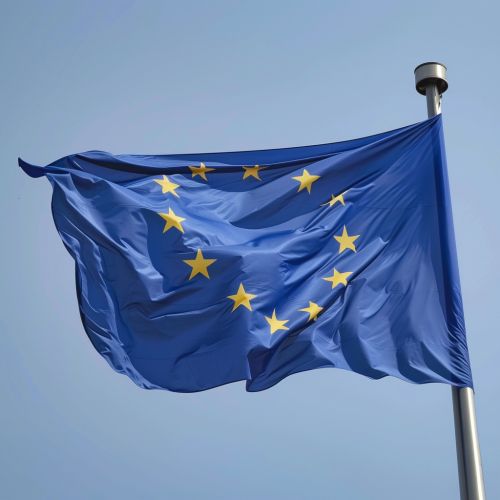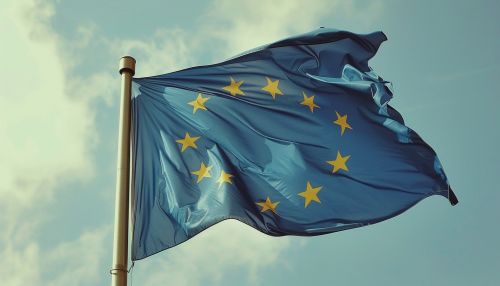Data Privacy Regulations: Difference between revisions
(Created page with "== Introduction == Data privacy regulations are legal frameworks designed to protect personal data from unauthorized access, use, and disclosure. These regulations are essential in ensuring that individuals' privacy rights are maintained in an increasingly digital world. This article delves into the various aspects of data privacy regulations, their historical development, key principles, global variations, and their impact on businesses and individuals. == Historical D...") |
No edit summary |
||
| Line 38: | Line 38: | ||
The EU's General Data Protection Regulation (GDPR), which came into effect in May 2018, is one of the most comprehensive data protection laws in the world. It applies to all organizations that process the personal data of EU residents, regardless of where the organization is based. The GDPR introduced several new requirements, including the need for data protection officers, data breach notification, and the right to data portability. | The EU's General Data Protection Regulation (GDPR), which came into effect in May 2018, is one of the most comprehensive data protection laws in the world. It applies to all organizations that process the personal data of EU residents, regardless of where the organization is based. The GDPR introduced several new requirements, including the need for data protection officers, data breach notification, and the right to data portability. | ||
[[Image:Detail-96089.jpg|thumb|center|The flag of the European Union.|class=only_on_mobile]] | |||
[[Image:Detail-96090.jpg|thumb|center|The flag of the European Union.|class=only_on_desktop]] | |||
=== United States === | === United States === | ||
Latest revision as of 04:44, 4 July 2024
Introduction
Data privacy regulations are legal frameworks designed to protect personal data from unauthorized access, use, and disclosure. These regulations are essential in ensuring that individuals' privacy rights are maintained in an increasingly digital world. This article delves into the various aspects of data privacy regulations, their historical development, key principles, global variations, and their impact on businesses and individuals.
Historical Development
The concept of data privacy has evolved significantly over the past few decades. Initially, data protection laws were primarily concerned with the protection of personal information in government databases. However, with the advent of the internet and the proliferation of digital technologies, the scope of these laws has expanded to include private sector entities and a wide range of data processing activities.
Early Legislation
The first significant data protection law was the German Federal Data Protection Act of 1970, which set the groundwork for future regulations. This was followed by the Swedish Data Act in 1973 and the United States' Privacy Act of 1974, which regulated the collection, maintenance, use, and dissemination of personal information by federal agencies.
European Union Data Protection Directive
In 1995, the European Union (EU) adopted the Data Protection Directive (Directive 95/46/EC), which aimed to harmonize data protection laws across member states. This directive established key principles such as data minimization, purpose limitation, and the rights of data subjects.
Key Principles of Data Privacy Regulations
Data privacy regulations are built on several fundamental principles that guide the collection, processing, and storage of personal data. These principles are designed to ensure that personal data is handled in a manner that respects individuals' privacy rights.
Lawfulness, Fairness, and Transparency
Data must be processed lawfully, fairly, and in a transparent manner. This means that individuals should be informed about how their data is being used and have the right to access their data.
Purpose Limitation
Personal data should be collected for specified, explicit, and legitimate purposes and not further processed in a manner that is incompatible with those purposes.
Data Minimization
Data collected should be adequate, relevant, and limited to what is necessary in relation to the purposes for which they are processed.
Accuracy
Personal data must be accurate and, where necessary, kept up to date. Inaccurate data should be corrected or deleted without delay.
Storage Limitation
Personal data should be kept in a form that permits identification of data subjects for no longer than is necessary for the purposes for which the data is processed.
Integrity and Confidentiality
Personal data must be processed in a manner that ensures appropriate security, including protection against unauthorized or unlawful processing and against accidental loss, destruction, or damage.
Global Variations in Data Privacy Regulations
Data privacy regulations vary significantly across different regions and countries. While some regions have comprehensive data protection laws, others have sector-specific regulations or lack formal data protection frameworks altogether.
European Union
The EU's General Data Protection Regulation (GDPR), which came into effect in May 2018, is one of the most comprehensive data protection laws in the world. It applies to all organizations that process the personal data of EU residents, regardless of where the organization is based. The GDPR introduced several new requirements, including the need for data protection officers, data breach notification, and the right to data portability.


United States
In the United States, data privacy regulations are more fragmented. There is no single federal data protection law; instead, there are various sector-specific laws such as the Health Insurance Portability and Accountability Act (HIPAA) for healthcare data and the Gramm-Leach-Bliley Act (GLBA) for financial data. Additionally, some states have enacted their own data protection laws, with the California Consumer Privacy Act (CCPA) being one of the most notable examples.
Asia
In Asia, data protection laws vary widely. Japan's Act on the Protection of Personal Information (APPI) is one of the oldest and most comprehensive data protection laws in the region. In contrast, countries like India and China are still in the process of developing and implementing comprehensive data protection frameworks.
Impact on Businesses
Data privacy regulations have a significant impact on businesses, particularly those that operate internationally. Compliance with these regulations requires substantial investment in data protection measures, including technology, policies, and training.
Compliance Costs
Businesses must invest in various measures to ensure compliance with data privacy regulations. This includes implementing data protection technologies, conducting regular audits, and providing training to employees. Non-compliance can result in hefty fines and reputational damage.
Data Protection Officers
Many data privacy regulations, including the GDPR, require organizations to appoint a data protection officer (DPO). The DPO is responsible for overseeing the organization's data protection strategy and ensuring compliance with relevant laws.
Data Breach Notification
Data privacy regulations often require organizations to notify authorities and affected individuals in the event of a data breach. This can involve significant costs and logistical challenges, particularly for large organizations with extensive data processing activities.
Impact on Individuals
Data privacy regulations provide individuals with several rights and protections regarding their personal data. These rights empower individuals to have greater control over their data and hold organizations accountable for how their data is used.
Right to Access
Individuals have the right to access their personal data held by organizations. This includes the right to obtain information about how their data is being processed and to receive a copy of their data.
Right to Rectification
Individuals have the right to have inaccurate or incomplete personal data corrected. This ensures that organizations maintain accurate and up-to-date records.
Right to Erasure
Also known as the "right to be forgotten," this right allows individuals to request the deletion of their personal data under certain circumstances, such as when the data is no longer needed for the purposes for which it was collected.
Right to Data Portability
Individuals have the right to receive their personal data in a structured, commonly used, and machine-readable format. They also have the right to transmit this data to another organization.
Challenges and Future Directions
While data privacy regulations have made significant strides in protecting individuals' privacy rights, several challenges remain. These include the rapid pace of technological advancements, the global nature of data flows, and the need for international cooperation.
Technological Advancements
Emerging technologies such as artificial intelligence, big data analytics, and the Internet of Things (IoT) pose new challenges for data privacy. These technologies often involve the collection and processing of vast amounts of personal data, raising concerns about how this data is used and protected.
Global Data Flows
The global nature of data flows means that personal data often crosses international borders. This creates challenges for data privacy regulations, as different countries have different laws and standards. International cooperation and harmonization of data protection laws are essential to address these challenges.
Future Directions
The future of data privacy regulations will likely involve a greater emphasis on accountability and transparency. Organizations will need to demonstrate that they have robust data protection measures in place and are transparent about how they use personal data. Additionally, there may be increased focus on the rights of individuals and the need for stronger enforcement mechanisms.
See Also
- General Data Protection Regulation
- California Consumer Privacy Act
- Health Insurance Portability and Accountability Act
- Data Protection Officer
- Internet of Things
